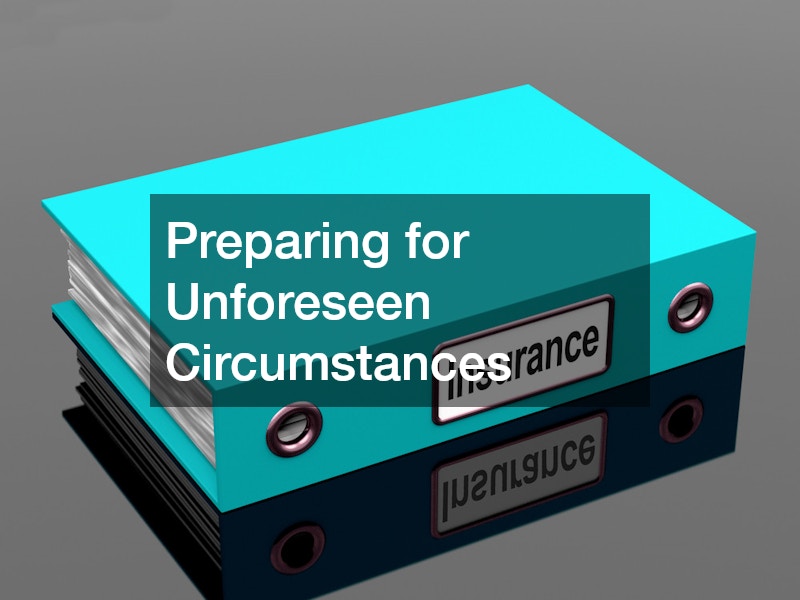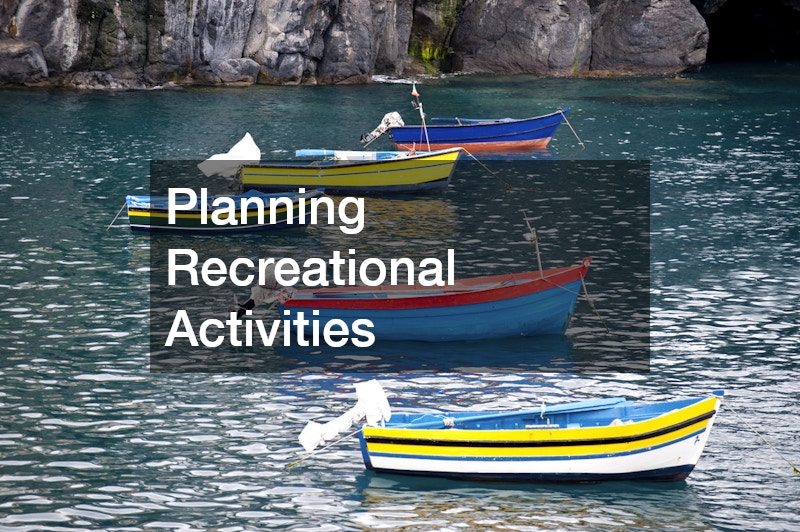
Planning a family gathering can be one of the most rewarding experiences, but it can also present significant challenges. From coordinating multiple schedules to managing logistics, ensuring comfort for every attendee, and handling last-minute surprises, the process requires foresight, organization, and careful decision-making. Whether you’re hosting a small backyard get-together, a milestone birthday celebration, or a multi-day reunion, the key to a successful gathering lies in proactive planning and attention to detail.
This guide provides a comprehensive approach to organizing a family event that flows smoothly from start to finish. It explores strategies for anticipating and addressing potential challenges, arranging convenient transportation for guests, planning meals and refreshments, scheduling activities, and managing logistics such as storage and cleanup. Each section also highlights practical ways to leverage professional resources and services to ease the host’s responsibilities, allowing more time to focus on creating a memorable and enjoyable experience for everyone.

Preparing for Unforeseen Circumstances
One of the most critical elements in planning a family event is being prepared for unexpected situations. Event insurance is a tool that many hosts overlook but can be essential for protecting your investment. Family events often involve rented venues, equipment, catering services, and hired staff. Any of these could be subject to cancellation, damage, or liability issues. Having comprehensive coverage ensures that, in case of an accident, inclement weather, or sudden changes, you’re financially protected.
Selecting the right policy requires careful consideration. Determine the size of your event, the value of rented equipment, and the level of risk associated with activities like boating, outdoor games, or catering services. Some policies cover property damage, others cover injury claims, and certain packages provide protection for cancellations. Reading the fine print is crucial to avoid gaps in coverage.
Beyond insurance, proactive planning for emergencies is essential. Maintain a list of emergency contacts, first aid supplies, and alternative plans for outdoor activities in case of bad weather. Consider identifying backup venues or tents for outdoor portions of the event. Communicate contingency plans with your vendors and venue managers so everyone is prepared if adjustments are needed. Having a small, trained team or volunteers ready to handle unexpected situations can ensure a faster response and reduce potential disruption. Simple steps like creating a checklist for emergency procedures, printing directions for local hospitals, or having a weather monitoring plan can further enhance preparedness. With proper foresight, you can focus on the celebrations while minimizing the risk of unexpected disruptions.
Ensuring Reliable Guest Transportation
For family events where guests travel from out of town, coordinating transportation is key. Utilizing an airport car service can help ensure that your guests arrive on time and comfortably. Depending on the size of the gathering, a professional service can provide a fleet of vehicles, eliminating the confusion of multiple taxis or ride-share services.
Scheduling is critical. Confirm flight arrival times and communicate pickup schedules in advance. Consider organizing a single point of contact who can coordinate with drivers to manage delays or changes efficiently. For larger groups, renting vans or shuttles may be preferable to individual cars, allowing families to travel together and reducing logistical challenges.
Professional airport car services also provide the added benefit of familiarity with local routes, ensuring timely arrivals and departures. They can handle luggage efficiently, allowing guests to focus on settling in or preparing for the event rather than navigating unfamiliar areas. It’s also helpful to provide guests with clear instructions on where drivers will meet them and estimated travel times. Additionally, sharing real-time updates through messaging apps can prevent confusion and improve coordination. Hosts may also consider providing small welcome kits in the vehicles with water, snacks, or event schedules, further enhancing guest comfort and first impressions.

Choosing Convenient Places for Breaks and Refreshments
Family events often require intermittent breaks and casual gatherings for conversation or downtime. Selecting nearby coffee shops can provide an ideal setting for these moments. Coffee shops offer a comfortable environment for socializing before, during, or even after the main event, giving guests a chance to relax and recharge.
When choosing coffee shops, consider location, seating capacity, and menu options. Make reservations if the event coincides with peak hours to ensure your group has sufficient space. Some shops may allow private sections or reserved tables, which can help maintain a sense of privacy and organization for your gathering.
Additionally, coffee shops can serve as convenient pit stops for guests arriving early from travel. Coordinating timings ensures the event schedule remains smooth and that no one feels rushed or overlooked. Small additions like pre-ordering drinks or snacks can further streamline the experience. Encouraging casual meet-ups at coffee shops before the main event also gives late arrivals a chance to connect with family and feel included. Consider also including coffee shops in walking tours of the local area or pairing them with small community events to add extra enjoyment for your guests.
Selecting Diverse and Appealing Cuisine Options
Food is often the centerpiece of any family event, and offering diverse cuisine options can elevate the experience. Including Asian cuisine, for example, provides flavorful variety and caters to guests with different tastes. Asian dishes can range from light appetizers to hearty main courses, offering something for everyone while creating an engaging culinary experience.
When planning meals, account for dietary restrictions and preferences. Offer vegetarian, gluten-free, or nut-free options alongside traditional dishes to ensure inclusivity. Work with caterers experienced in preparing Asian cuisine for large groups, as presentation, timing, and portioning are key to avoiding delays or dissatisfaction.
Sampling dishes in advance or holding tastings can help finalize selections, providing confidence that the offerings will appeal to the diverse preferences of your family. Including interactive elements, such as live cooking stations, sushi rolling demonstrations, or customizable dishes, can add fun and engagement, making the meal portion of the event a memorable experience.
Coordinating Dining Options for Large Groups
In addition to specialized cuisine, organizing dining for large groups requires careful planning. Choosing restaurants that can accommodate significant numbers is essential for meals held outside the main event venue. Early reservations, group menus, and seating arrangements help prevent long wait times and ensure everyone is served efficiently.
When evaluating restaurants, consider proximity to the main event, parking availability, and ease of access for elderly or differently-abled family members. Communicate guest numbers and dietary needs in advance to allow staff to prepare appropriately. Some venues offer group discounts or private rooms, which can improve the overall experience and simplify coordination.
Staggered seating or pre-ordering options can streamline service during busy meal times. Effective planning in this area prevents logistical bottlenecks, maintains energy levels, and keeps guests engaged and satisfied throughout the event. Combining restaurant visits with other event activities, such as nearby parks, walking tours, or local cultural sites, can create a more dynamic and memorable experience for attendees.

Planning Recreational Activities
Recreational activities are a highlight of family events, and incorporating local boat rentals can provide a memorable experience. Water-based activities are ideal for family reunions or summer gatherings, offering entertainment for a wide range of ages.
When planning boat rentals, verify the safety record of the provider, the availability of safety equipment, and capacity limits. Schedule activities to minimize conflicts with other event components and ensure smooth transitions between meals, breaks, and entertainment. Include contingency plans in case of weather changes or technical issues with the boats.
Encouraging participation while maintaining safety protocols ensures everyone enjoys the experience without stress. Recreational activities add variety, foster engagement among guests, and provide unique memories that enhance the overall success of the event. Organizing smaller group rotations for activities can prevent overcrowding and ensure that everyone has a chance to participate comfortably. Consider including on-board games, family trivia, or photography stations to make these activities even more memorable.
Managing Waste and Clean-Up
Managing waste is an often-overlooked aspect of event planning but is essential for maintaining cleanliness and comfort. Renting a dumpster provides a convenient solution for handling trash generated during the event, from disposable plates and cups to decorations and packaging.
Estimate the size of the dumpster based on the expected guest count and type of activities planned. Schedule delivery and pickup times that align with the event timeline to prevent disruptions. Ensure waste disposal is clearly organized, with recycling and trash bins placed strategically throughout the venue.
Proper planning reduces post-event stress and allows for efficient cleanup, leaving the venue in good condition and minimizing environmental impact. Coordinating with a reputable dumpster rental service ensures that logistical details are handled professionally, giving hosts peace of mind. Communicating waste handling procedures with volunteers or staff during the event can further streamline cleanup efforts. Including labeled recycling, compost, and trash bins also educates guests on sustainability while keeping the site orderly.
Maintaining Comfort in Indoor Venues
Indoor comfort is essential for creating a pleasant atmosphere, and ensuring functional air conditioning is critical. Scheduling AC service before the event guarantees that cooling systems operate efficiently, maintaining a comfortable temperature for all guests.
Inspect the venue’s system for proper airflow, refrigerant levels, and clean filters. Schedule routine maintenance or repairs well in advance, and consider additional cooling solutions for high-traffic areas. Prioritizing indoor comfort ensures that guests remain relaxed and engaged, reducing complaints and contributing to a positive overall experience. Proper climate control also protects food, decorations, and sensitive equipment from damage due to heat or humidity. Portable fans or additional cooling units can supplement central AC systems in particularly large or high-ceiling spaces.
Organizing Supplies and Equipment Storage
Large family events often require substantial equipment, decorations, and supplies. Using a mini storage unit can help keep items organized, secure, and accessible before, during, and after the event.
Select a unit based on size, accessibility, and security features. Organize supplies logically for easy retrieval during setup, including labeled boxes and designated areas for each category of items. Schedule deliveries or pick-ups to minimize delays and ensure items are ready when needed.
Proper storage reduces clutter at the main venue, prevents lost or damaged items, and simplifies teardown and storage after the event. Efficient organization allows the event to proceed smoothly and minimizes host stress. Planning storage in advance also gives time to inspect decorations or equipment for damage and repair any items before the event. Assigning a few volunteers to manage storage can further streamline access and ensure nothing is misplaced.

Enhancing Visibility and Event Atmosphere
Banners are an effective way to enhance the event’s visual appeal and guide guests. Strategically placed banners can welcome attendees, highlight activity areas, or communicate important information such as schedules and directions.
Design banners with clear, readable text and durable materials that withstand outdoor or indoor conditions. Coordinate banner placement with other decor to maintain a cohesive aesthetic. Consider themed designs to improve navigation and create a festive atmosphere.
Well-planned signage improves the flow of the event, reduces confusion, and contributes to the overall enjoyment of guests. Banners serve both functional and decorative purposes, helping create an organized, vibrant, and welcoming environment. Including smaller directional signs or table markers inside the venue can also aid guest navigation and improve overall satisfaction.
A successful family event requires a balance of creativity, organization, and foresight. From ensuring protection through event insurance to arranging reliable transportation, selecting diverse cuisine, and coordinating recreational activities, every detail plays a role in the smooth execution of the event. Proper attention to logistics like waste management, storage, indoor comfort, and signage ensures guests enjoy themselves while reducing stress for hosts.
Strategic use of professional services and thoughtful preparation helps anticipate challenges and create lasting memories. With proactive preparation, clear communication with vendors, and attention to guest needs, hosts can create memorable experiences that strengthen family bonds. Smart planning, combined with attention to detail and the use of resources, ensures family events are seamless, enjoyable, and stress-free, allowing hosts to focus on celebrating together. Thoughtful touches, careful coordination, and consideration for guest comfort transform any gathering into an event everyone will remember fondly for years to come. Including small gestures such as welcome notes, customized seating, interactive family games, and dedicated photography stations can also enhance the atmosphere and make attendees feel truly valued.
One of the most critical elements in planning a family event is being prepared for unexpected situations. Event insurance is a tool that many hosts overlook but can be essential for protecting your investment. Family events often involve rented venues, equipment, catering services, and hired staff. Any of these could be subject to cancellation, damage, or liability issues. Having comprehensive coverage ensures that, in case of an accident, inclement weather, or sudden changes, you’re financially protected.
Selecting the right policy requires careful consideration. Determine the size of your event, the value of rented equipment, and the level of risk associated with activities like boating, outdoor games, or catering services. Some policies cover property damage, others cover injury claims, and certain packages provide protection for cancellations. Reading the fine print is crucial to avoid gaps in coverage.
Beyond insurance, proactive planning for emergencies is essential. Maintain a list of emergency contacts, first aid supplies, and alternative plans for outdoor activities in case of bad weather. Consider identifying backup venues or tents for outdoor portions of the event. Communicate contingency plans with your vendors and venue managers so everyone is prepared if adjustments are needed. With proper foresight, you can focus on the celebrations while minimizing the risk of unexpected disruptions.
